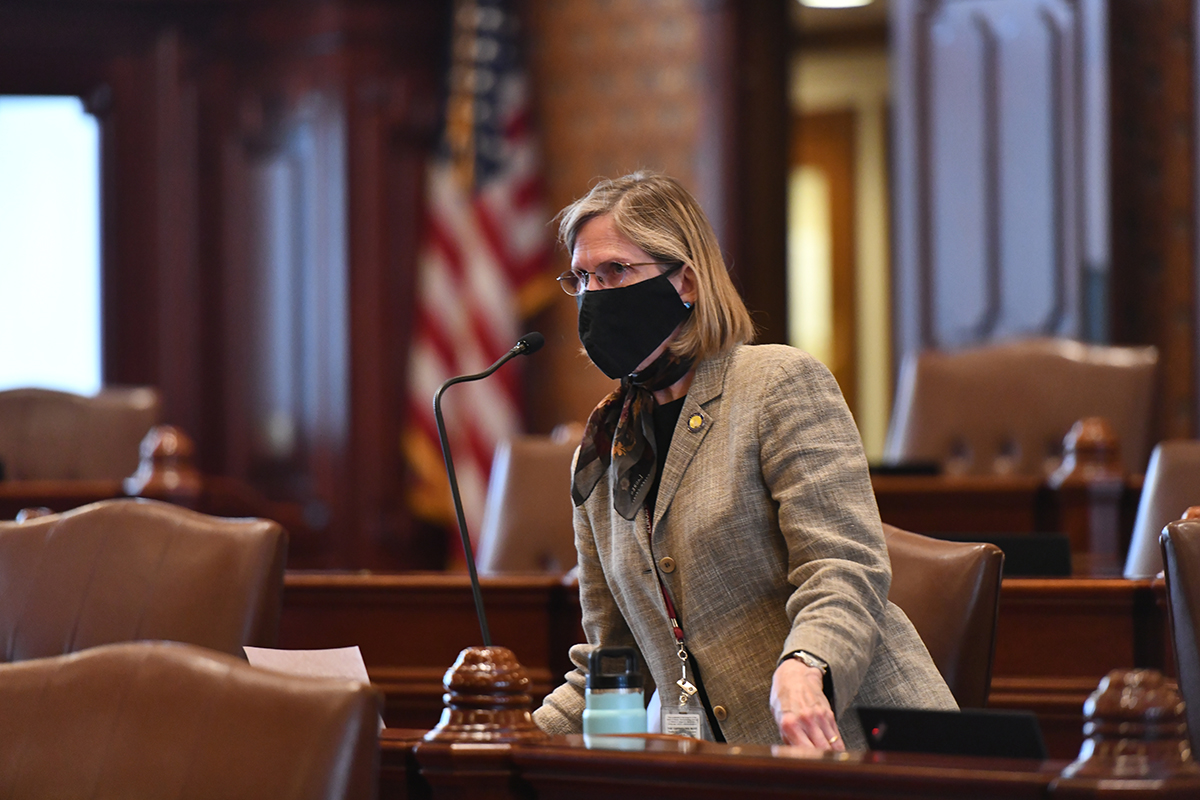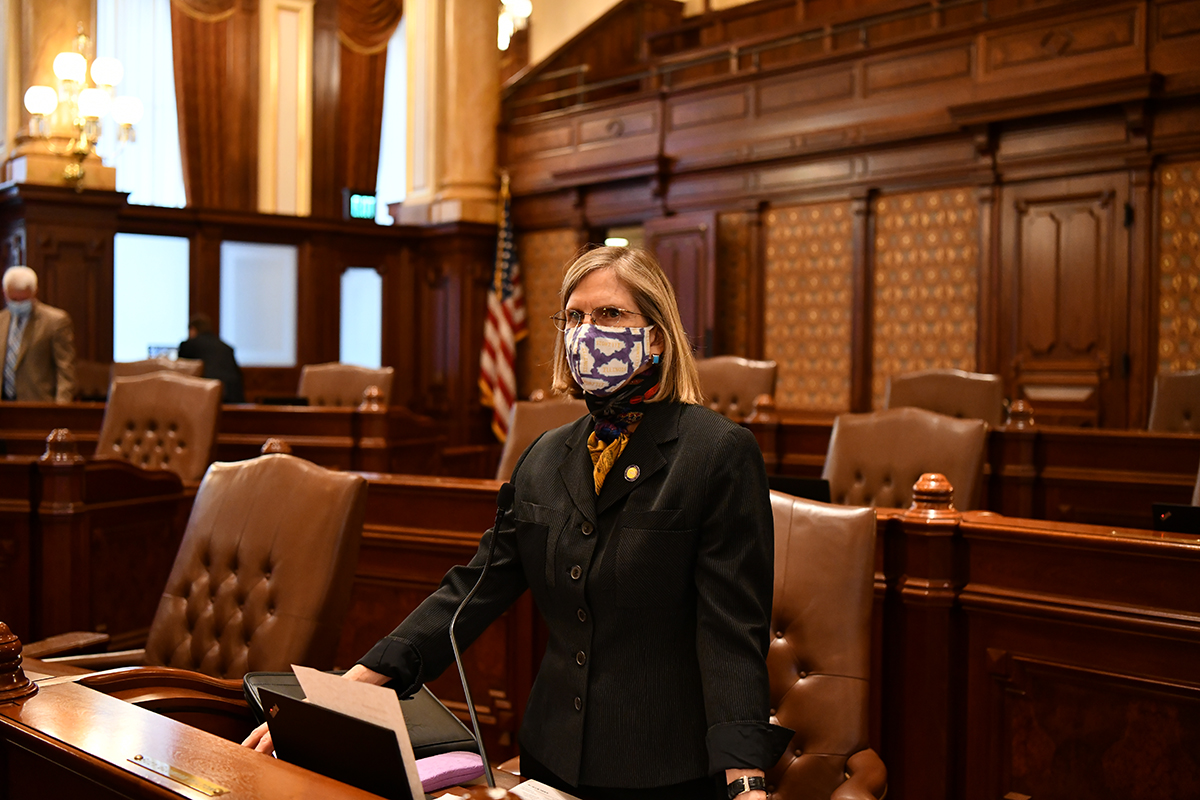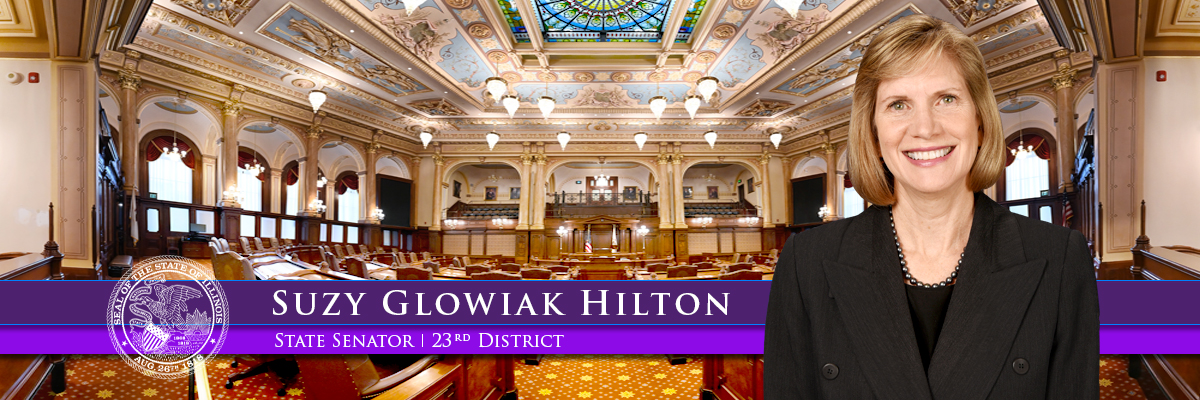Governor signs Glowiak Hilton plan to educate students on vaping risks
- Category: Press Releases
 SPRINGFIELD – To make sure students know the potentially life-threatening risks of vaping, State Senator Suzy Glowiak Hilton (D-Western Springs) created a new law to teach the dangers of e-cigarettes in school.
SPRINGFIELD – To make sure students know the potentially life-threatening risks of vaping, State Senator Suzy Glowiak Hilton (D-Western Springs) created a new law to teach the dangers of e-cigarettes in school.
“As e-cigarettes become more popular among children, Illinois has a responsibility to educate our youth on the dangerous, potentially fatal side effects,” Glowiak Hilton said. “In order to keep kids from developing harmful nicotine addictions, it’s critical to teach students about the proven health risks associated with vaping.”
Glowiak Hilton’s law expands Illinois’ current tobacco health curricula taught in elementary and secondary schools to include health concerns associated with e-cigarettes and other vapor devices.
“Vaping can be detrimental to development for teens and young adults,” Glowiak Hilton said. “Adolescents are vulnerable to tobacco companies’ deceitful marketing ploys, and adding to the school tobacco health curricula is a strong defense to prevent children from becoming addicted at an early age.”
House Bill 3202 is effective immediately and begins with the 2021-2022 academic year.
New law by Glowiak Hilton to aid local businesses
- Category: Uncategorised

“Local governments are capable of deciding what is best for the local business community’s financial future,” Glowiak Hilton said. “To provide support where it’s needed most, this law allows units of local government to determine where waiving fees would be beneficial to a struggling business.”
The law creates an option for counties and municipalities to waive licensing, permitting or registration fees for local businesses and services. To qualify, businesses must demonstrate financial need from the pandemic.
Counties and municipalities regulate businesses in a multitude of industries that may qualify, including bars, restaurants, construction, insurance, transportation, tourism and entertainment.
“Numerous industries have faced unique challenges over the last year and a half,” Glowiak Hilton said. “This proposal allows governments to offer relief to any local business that demonstrates financial loss.”
House Bill 2454 is effective immediately.
Senate Appropriations, Commerce Committees to hold joint hearing on Back 2 Business grant program
- Category: Uncategorised

“Local businesses of all sizes and industries have faced various economic disruptions over the past year,” Glowiak Hilton said, who chairs the Senate Commerce Committee. “This hearing is a collaborative effort to encourage open conversation and provide the small business community an opportunity to address DCEO and their elected officials directly.”
The B2B program, administered by the Illinois Department of Commerce and Economic Opportunity, is expected to distribute $300 million in economic relief to small businesses across the state to help offset losses related to the COVID-19 pandemic.
Only testimony on the subject matter will be heard.
A livestream of the committee hearing can be viewed when proceedings begin at www.ilga.gov.
Who: Members of the Senate Appropriations and Commerce Committees
What: Subject matter hearing on the Back 2 Business grant program
When: Thursday, Aug. 12 at noon
Where: Room C600 of the Bilandic Building, 160 N. LaSalle St., Chicago, IL 60601 or Virtual Room 1 on www.ilga.gov
Glowiak Hilton to host document shred event in Elmhurst
- Category: Press Releases
 OAKBROOK TERRACE – To provide residents with a secure option for shredding documents containing personal information, State Senator Suzy Glowiak Hilton (D-Western Springs) is hosting an event in Elmhurst offering free, safe discarding services.
OAKBROOK TERRACE – To provide residents with a secure option for shredding documents containing personal information, State Senator Suzy Glowiak Hilton (D-Western Springs) is hosting an event in Elmhurst offering free, safe discarding services.
Shredding trucks will be available at York Commons, located at 665 S. York Rd., from 9 a.m. to 12 p.m. or until the trucks are full on Saturday, Aug. 21. A limit of two boxes of documents per car will be encouraged.
“Securely discarding vulnerable documents is a strong effort to protect yourself and your family from identity fraud,” Glowiak Hilton said. “Many of us have piles of old, unnecessary documents cluttering our homes, and I encourage families to take advantage of this free community event to safely dispose unwanted papers containing personal information.”
Examples of documents with personally identifiable information that should be safely discarded include bank statements, outdated medical records, tax returns, utility bills, junk mail, credit card applications and receipts.
For more information, call Glowiak Hilton’s office at 630-785-3177.
More Articles …
Page 36 of 68




